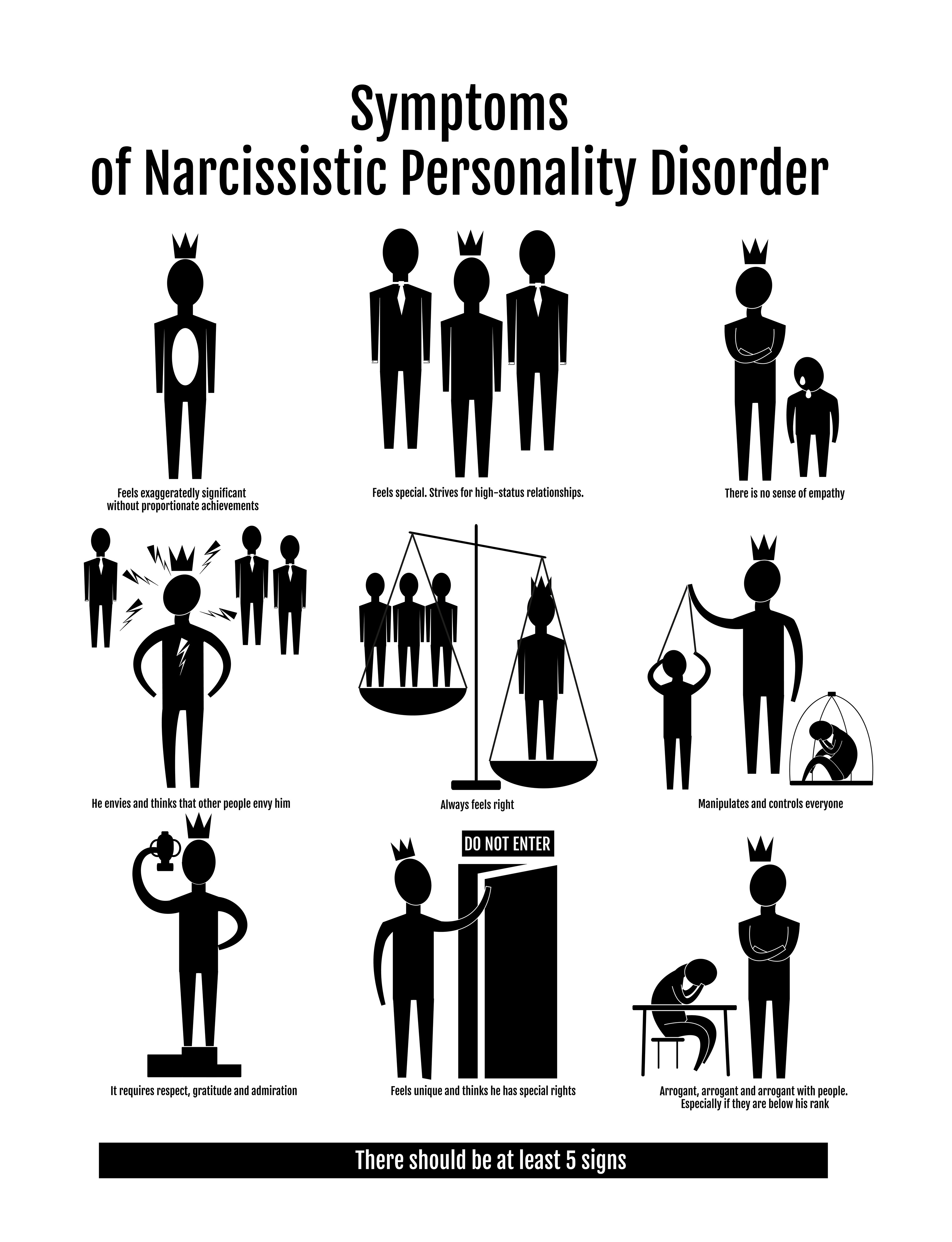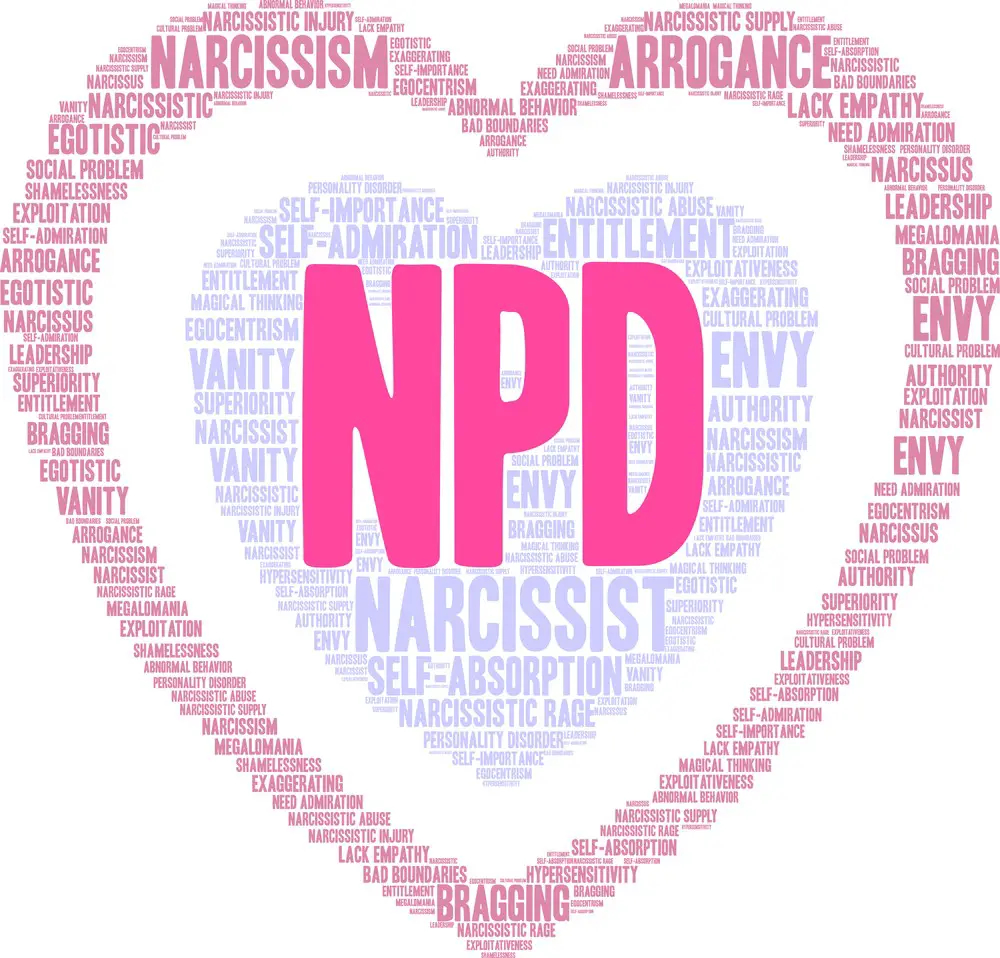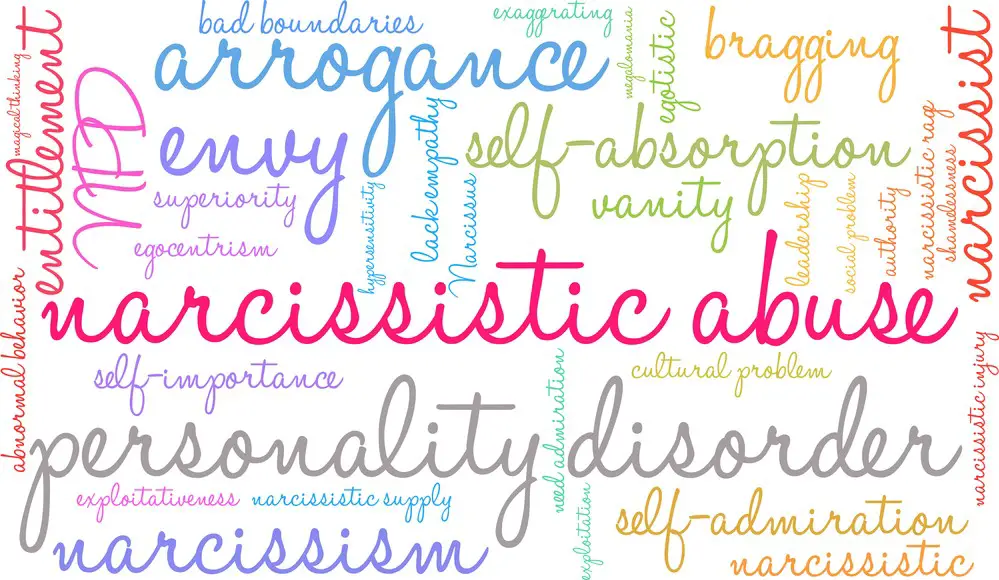As a BetterHelp affiliate, we receive compensation from BetterHelp if you purchase products or services through the links provided
Delusional narcissism is a complex psychological and emotional phenomenon that impacts many aspects of an individual’s life. At its core, delusional narcissism combines the features of narcissistic personality disorder (NPD) and dissociation from reality, resulting in a skewed perception of oneself and others. Narcissistic personality disorder is characterized by a persistent pattern of grandiosity, a constant need for admiration, and a lack of empathy for others. When someone with NPD also develops delusions, their narcissism can become further distorted and intensified, leading to significant challenges in their relationships and interactions.
Understanding the mindset of a delusional narcissist can be challenging, as their behaviors and thoughts are often driven by a need for constant validation and an inability to accept any form of criticism. Their reality becomes disordered, and these individuals may fluctuate between extreme self-confidence and intense vulnerabilities. This delusional state can further exacerbate existing narcissistic traits, making it extremely difficult for affected individuals to form healthy connections within their personal and professional lives.
Key Takeaways
- Delusional narcissism is a complex phenomenon combining narcissistic personality disorder with dissociation from reality, impacting various aspects of an individual’s life.
- Individuals with this condition can have a disordered reality, fluctuating between extreme self-confidence and intense vulnerability, making healthy relationships difficult.
- Building awareness and navigating encounters is essential for dealing with delusional narcissists and promoting mental health for all involved parties.
 Understanding Narcissism and Delusion
Understanding Narcissism and Delusion
Nature of Narcissism
Narcissism is a personality trait characterized by a sense of self-importance, grandiosity, and a need for admiration and attention from others. It is often associated with a lack of empathy, envy, and arrogance. Narcissistic Personality Disorder (NPD) is a more severe form of narcissism, with individuals displaying persistent narcissistic behavior and an excessive need for admiration. The Diagnostic and Statistical Manual of Mental Disorders (DSM-5) classifies NPD as a personality disorder.
What It Means to Be Delusional
Delusional disorders and delusions are separate from narcissism but can sometimes intersect. A delusion is a fixed, false belief maintained despite contradictory evidence and not based on reality. It can occur in various mental health disorders, including delusional disorder, schizophrenia, and psychosis. Some possible forms of delusions include having special powers or grandiose fantasies, which can overlap with the traits of narcissism.
In some cases, individuals with NPD may engage in magical thinking, believing that their abilities and qualities are superior to others and even exceptional. This can further perpetuate their grandiose self-image and lead to a distorted sense of reality. However, it is essential to note that not all narcissistic individuals have delusions, and their reality experiences may still be anchored in facts and awareness to some degree.
The intersection between narcissism and delusion can be complicated, with some individuals having both NPD and delusional disorder or schizophrenia. Recognizing these complexities is crucial for accurate assessments and appropriate treatments that address the underlying causes of the behaviors and beliefs.
When exploring the relationship between narcissism and delusion, it is vital to maintain a confident, knowledgeable, neutral, and clear perspective. Understanding the nuances of these conditions allows for better support and interventions for those affected by these mental health challenges.
Symptoms and Traits

Recognizing Narcissistic Traits
Narcissists often display a sense of superiority and entitlement in their behavior. They tend to have a strong need for admiration and exhibit self-centeredness. In relationships, a narcissist may lack empathy and a habit of manipulating others for personal gain. They may become aggressive if criticized or threatened, displaying sudden bursts of rage. Recognizing these traits is essential to identify somebody with narcissistic personality disorder (NPD).
Delusional Symptoms in Narcissists
Delusional narcissists often experience delusions of grandeur, seeing themselves as more valuable and necessary than they genuinely are. These individuals might exhibit mania and intense mood swings, especially when they don’t receive the admiration and attention they crave. Due to their inflated sense of self, they may gaslight others to control and manipulate them.
Their insecurity can lead to depression, and they might react aggressively if they perceive their self-image is being challenged. When dealing with delusional narcissists, it is crucial to approach them carefully and with tact to avoid triggering rage or other adverse reactions.
Delusional Narcissist in Relationship
 Impact on Partners
Impact on Partners
Delusional narcissists in relationships can cause significant emotional and psychological harm to their partners. They often lack empathy, making understanding or caring about their partner’s feelings difficult. As a result, their actions can be characterized by bad behavior, such as lying, cheating, and even stalking. These actions often stem from their insecurities and a need to feel powerful or in control.
Narcissistic tendencies also make these individuals crave constant admiration and validation from their partners. This need often comes at the expense of their partner’s well-being, leaving them feeling drained, unsupported, and undervalued. They may also find themselves doubting their self-worth and abilities due to the narcissist’s repeated devaluation.
How Narcissists Manipulate
Narcissists manipulate others to maintain their idealized self-image and narcissistic supply. They use various tactics to achieve this, including deception and gaslighting. Gaslighting involves intentionally manipulating someone into doubting their perceptions or sanity, causing confusion and distress.
- Deception: Narcissists may frequently lie or distort the truth to present themselves in a favorable light or to avoid taking responsibility for their actions. They may even create elaborate stories to convince their partner of their lives, making it difficult to separate reality from fiction.
- Gaslighting: Narcissists gain control and assert dominance by making their partner question their reality. This can lead to feelings of confusion, anxiety, and even depression in the victim, as they struggle to understand the true nature of their relationship.
- Narcissistic supply: To ensure a consistent source of admiration and validation, narcissists may play the victim or idealize and devalue their partners. This cycle keeps the partner entangled in the relationship, as they may feel responsible for the narcissist’s well-being and continue to try to satisfy their ever-changing demands.
While dealing with a delusional narcissist in a relationship can be challenging and exhausting, understanding their behavior and tactics can help partners protect themselves and seek support as they navigate this difficult terrain.
Building Awareness and Navigating Encounters
 Safety Measures
Safety Measures
When encountering a delusional narcissist, safety should be a priority. It’s essential to be aware of their destructive behaviors and take precautions to maintain a safe distance. This may involve setting boundaries, avoiding unnecessary interactions, and seeking support from trusted individuals. Remember that empathy is crucial in understanding the situation, but maintaining one’s mental health is essential.
Seeking Professional Help
Awareness of this mental health condition is essential for those affected directly or indirectly. Encountering a delusional narcissist can cause anxiety and distress; thus, it is crucial to seek professional help. A therapist or counselor specializing in narcissism and psychotherapy can provide tailored advice and support for navigating interactions and understanding the importance of self-care.
In conclusion, by implementing safety measures and seeking professional help, individuals can better understand how to navigate encounters with delusional narcissists in a confident, knowledgeable, and safe manner.
Disordered Reality of a Delusional Narcissist
A delusional narcissist inhabits a disordered reality characterized by a distorted view of the world surrounding them. These individuals often engage in delusional thinking regarding their social standing, relationships, and perceived successes. They will frequently overvalue their opinion in various matters, disregarding the perspectives of others.
This self-deceptive behavior emerges from envy, an inflated sense of self, and a deep-seated need for admiration. Delusional narcissists might not realize the full extent of their self-deception, as their distorted reality may prevent them from seeing its negative impacts. They may be completely immersed in their self-built world, dismissing criticism or opposing viewpoints as unwarranted or irrelevant.
Denial also emerges as a critical feature in the disordered reality of a delusional narcissist. When confronted with facts undermining their beliefs, they may resort to denial to preserve their delusional thinking. This avoidance mechanism helps them maintain their superiority and preserves their self-image.
Paranoia might be another aspect of a delusional narcissist’s disordered reality. They may believe that others deliberately try to undermine their accomplishments or diminish their importance. This misguided belief fuels their sense of entitlement and may lead to social isolation, as they find it challenging to maintain healthy, reciprocal relationships.
In conclusion, the disordered reality of a delusional narcissist is shaped by a complex interplay of envy, self-deception, denial, and paranoia. These factors contribute to distorted perceptions of their importance, abilities, and entitlements, ultimately impacting their interpersonal relationships and overall quality of life.
Glimpse into the Mindset
A delusional narcissist exhibits an inflated sense of self-importance and grandiosity. They believe they are superior to others, expecting admiration and special treatment. Attention-seeking behaviors and an insatiable need for validation mark their mindset.
As a performer by nature, the delusional narcissist thrives in situations where they can captivate an audience. This allows them to feel powerful and in control. Their fragile ego depends on excessive admiration from others, without which they may experience feelings of inadequacy and insecurity.
In some cases, delusional narcissists can develop into malignant narcissists. Malignant narcissists possess traits such as a lack of empathy, manipulative behaviors, and a willingness to exploit others for personal gain. This type of narcissist can be dangerous due to the lengths they are willing to go to fulfill their desires and maintain their self-image.
Pathological narcissism is a more severe form of narcissistic personality disorder characterized by an extreme need for admiration and a persistent belief in one’s specialness. Those with pathological narcissism often have an unrealistic sense of their abilities and may struggle to form interpersonal relationships.
In conclusion, the mindset of a delusional narcissist is marked by an exaggerated sense of self-importance, constant attention-seeking, and an expectation of special treatment. This mindset can give rise to further issues, such as malignant narcissism and pathological narcissism, making it essential for individuals to seek professional help if they recognize these traits within themselves or others.
 Delusional Narcissism and Mental Health
Delusional Narcissism and Mental Health
Delusional Disorder and NPD
Delusional and narcissistic personality disorders (NPD) are classified as mental health conditions in the DSM-5. However, they have distinct features that separate them. The delusional disorder involves the presence of one or more non-bizarre delusions lasting for at least one month, without any other symptoms of psychosis, such as hallucinations or disorganized speech. On the other hand, NPD is characterized by a persistent pattern of grandiosity, a constant need for admiration, and a lack of empathy for others.
In some cases, individuals may exhibit traits of both disorders, delusional narcissism. These individuals may have a grandiose self-image and an excessive need for attention while maintaining delusional beliefs about their abilities, accomplishments, and relationships.
 Narcissism and Other Mental Conditions
Narcissism and Other Mental Conditions
Narcissistic personality disorder can co-occur with various mental health conditions, such as schizophrenia, depressive disorders, and substance use disorders. While the underlying causes of these comorbidities are not fully understood, research suggests that genetics and neurobiology may play a role.
For example, some studies have found links between NPD and genetic predisposition, indicating that individuals with a family history of other mental health conditions may be at a higher risk for developing NPD. Additionally, research in neurobiology has shown that individuals with NPD may exhibit differences in the structure and function of certain brain regions, which could contribute to the development of NPD and comorbid mental health conditions.
Although narcissism can be present in various mental health conditions, it is essential to distinguish between NPD and other disorders, such as delusions or schizophrenia, to ensure appropriate treatment and support for each individual.
Frequently Asked Questions

What are common symptoms of narcissistic schizophrenia?
Narcissistic schizophrenia is a rare and complex mental disorder. Some common symptoms include delusions of grandeur, excessive self-importance, manipulative behaviors, and a lack of empathy for others. Individuals may also experience hallucinations or disorganized thinking, typical of schizophrenia.
How should one respond to a narcissist who plays the victim?
When dealing with a narcissist who plays the victim, it’s essential to maintain clear boundaries and avoid getting drawn into their manipulations. Stay calm, stick to the facts, and don’t let them control the emotional climate of the conversation.
Is there a connection between paranoid schizophrenia and narcissism?
While there is no direct connection between paranoid schizophrenia and narcissism, they can co-occur. In such cases, a person may exhibit symptoms of both disorders, such as delusions of persecution and unrealistic self-importance.
What does a narcissistic psychotic breakdown involve?
A narcissistic psychotic breakdown often involves a significant loss of touch with reality. The individual may experience intrusive thoughts, delusions of grandeur, or decreased empathy for others. This breakdown can lead to self-destructive behaviors and difficulties in social functioning.
How do narcissists twist stories to portray themselves as victims?
Narcissists often manipulate stories to present themselves as the victim. They may exaggerate or lie about others’ actions to gain sympathy or doubt another person’s credibility. Narcissists are skilled at portraying themselves as innocent and vulnerable, making it difficult to see through distortions.
What is the difference between a narcissistic sociopath and a delusional narcissist?
A narcissistic sociopath is characterized by a complete disregard for others’ feelings and a lack of empathy. This individual typically exhibits manipulative, exploitative behaviors and a willingness to harm others for personal gain. On the other hand, delusional narcissist experiences distorted beliefs about their importance but generally does not possess the malicious intent associated with sociopathy.
Jacob Maslow, a dedicated mental health advocate, writes from personal experience. Navigating his journey with the aid of Lexapro and consistent therapy, Jacob confronts the profound challenges of co-parenting with a deeply narcissistic ex. The barriers erected by his ex, from court order violations to denying communication with their children, have only intensified Jacob’s commitment to understanding and illuminating the complexities of narcissism. Through his writings, Jacob aspires to support those grappling with similar adversities. Often found taking long, reflective walks, he believes that with persistence, anyone can surmount their mental health challenges. Jacob’s legal platform also serves as a beacon for those trapped in custody battles with uncooperative ex-partners.
- Breaking the Silence: Why Men’s Mental Health Matters More Than Ever - April 15, 2025
- How to Transform a Home’s Patio Space into a Relaxing Space - March 23, 2025
- 5 Strategies to Use a Cell Phone to Help Manage Your Stress - March 23, 2025
This site contains affiliate links to products. We will receive a commission for purchases made through these links.


 Understanding Narcissism and Delusion
Understanding Narcissism and Delusion Impact on Partners
Impact on Partners Safety Measures
Safety Measures Delusional Narcissism and Mental Health
Delusional Narcissism and Mental Health Narcissism and Other Mental Conditions
Narcissism and Other Mental Conditions
